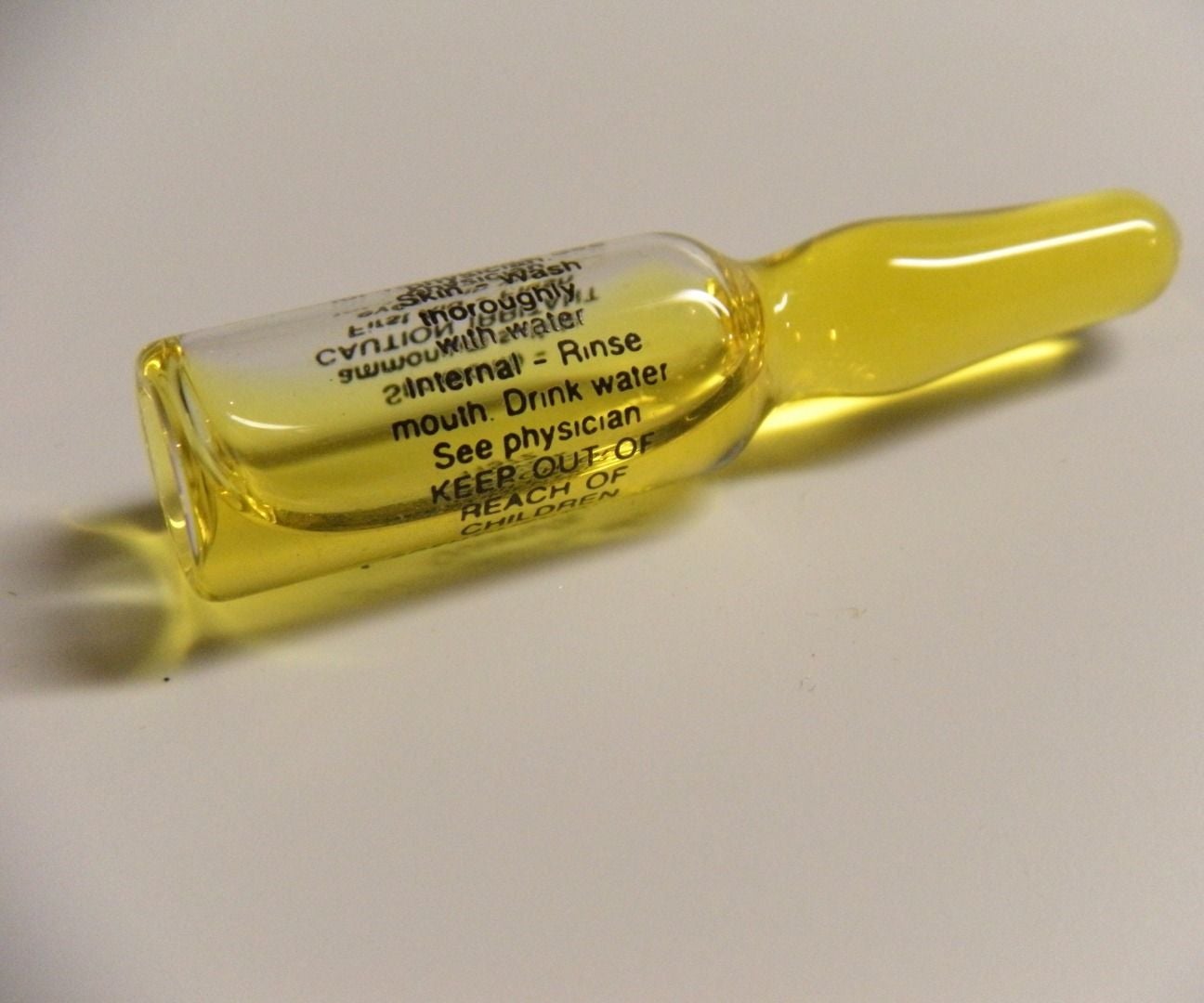

FAQs
How To Not Fart
Modified: August 5, 2023
Learn how to handle general questions about farting and find effective solutions to prevent embarrassing situations. Discover tips and tricks to avoid farting in public and maintain your social grace.
(Many of the links in this article redirect to a specific reviewed product. Your purchase of these products through affiliate links helps to generate commission for Under-tec.com, at no extra cost. Learn more)
Table of Contents
- Introduction
- Understanding the Causes of Flatulence
- Making Dietary Changes to Prevent Gas
- Managing Digestive Issues and Underlying Conditions
- Practicing Good Eating Habits
- Incorporating Physical Activity
- Utilizing Natural Remedies and Over-the-Counter Products
- Seeking Medical Advice for Persistent Flatulence
- Conclusion
Introduction
Flatulence, commonly known as farting, is a natural bodily function that is both normal and necessary. However, excessive or frequent flatulence can be embarrassing and uncomfortable, leading individuals to seek ways to minimize this bodily occurrence.
Understanding the causes of flatulence is essential in finding effective ways to prevent it. While certain foods and eating habits can contribute to increased gas production, other underlying health conditions may also play a role. By making dietary changes, practicing good eating habits, incorporating physical activity, and using natural remedies, individuals can manage and reduce their flatulence.
This article will delve into these different strategies and provide helpful tips for preventing and managing flatulence. Whether you’re looking to solve occasional gas discomfort or seeking a long-term solution, this article will guide you in finding relief.
Before we dive into the various strategies, it’s essential to note that gas and flatulence are normal bodily functions. Excessive or persistent flatulence, however, may be a sign of an underlying health issue that requires medical attention. If you have concerns about persistent flatulence or have accompanying symptoms, it is always advisable to consult a healthcare professional.
Understanding the Causes of Flatulence
Flatulence occurs when gas builds up in the digestive system and is released from the rectum. It’s a normal bodily process, but excessive or frequent flatulence can be bothersome. To effectively prevent and manage flatulence, it’s important to understand the various causes.
1. Gas-producing Foods: Certain foods are known to increase gas production in the digestive system. These include beans, lentils, cabbage, broccoli, onions, carbonated drinks, and certain artificial sweeteners. These foods contain carbohydrates that are difficult for the body to digest, resulting in increased gas production.
2. Swallowing Air: Another common cause of flatulence is swallowing air while eating or drinking. This can happen when eating too quickly, chewing gum, drinking carbonated beverages, using straws, or smoking. The air swallowed along with these activities accumulates in the digestive system and is eventually released as gas.
3. Digestive Disorders: Digestive disorders such as irritable bowel syndrome (IBS) or lactose intolerance can contribute to excessive flatulence. With conditions like these, the body may have difficulty digesting certain foods, leading to increased gas production and discomfort.
4. Gastrointestinal Infections: Infections in the gastrointestinal tract can lead to flatulence. Bacterial or viral infections can cause an imbalance in the gut flora, resulting in increased gas production. It’s important to address these infections promptly to reduce flatulence.
5. Medications: Certain medications, such as antibiotics, can disrupt the balance of bacteria in the digestive system, leading to increased flatulence. If you suspect your medication is causing excessive gas, consult your healthcare provider for an alternative or additional remedies.
6. Underlying Health Conditions: In some cases, flatulence may be a symptom of an underlying health condition such as celiac disease, Crohn’s disease, or gastrointestinal obstructions. If you’re experiencing persistent flatulence along with other concerning symptoms, it’s important to seek medical advice for a proper diagnosis and treatment.
By understanding the causes of flatulence, you can take the necessary steps to prevent and manage it. In the following sections, we will explore dietary changes, eating habits, physical activity, natural remedies, and medical advice that can help alleviate flatulence discomfort and improve your overall digestive health.
Making Dietary Changes to Prevent Gas
Diet plays a significant role in the production of gas in the digestive system. By making specific dietary changes, you can effectively prevent and reduce flatulence. Here are some strategies to consider:
1. Identify Trigger Foods: Pay attention to your diet and take note of foods that seem to cause excessive gas. Common culprits include beans, lentils, broccoli, cabbage, onions, carbonated drinks, and high-fiber foods. Limiting or avoiding these foods can help minimize gas production.
2. Gradually Increase Fiber Intake: Fiber is essential for good digestive health, but increasing your fiber intake suddenly can lead to gas and bloating. Instead, gradually increase your fiber consumption over time to allow your body to adjust. High-fiber foods like fruits, vegetables, and whole grains should be a part of your diet.
3. Be Mindful of Sugar Substitutes: Artificial sweeteners like sorbitol, xylitol, and mannitol are known to cause gas and bloating. Be mindful of these sugar substitutes in sugar-free products, chewing gum, and candies.
4. Chew Thoroughly: Chew your food slowly and thoroughly to aid in the digestion process. When you eat quickly and gulp down your food, you increase the chances of swallowing air, leading to flatulence.
5. Avoid Chewing Gum and Drinking Carbonated Drinks: Chewing gum and drinking carbonated beverages can introduce excess air into your digestive system, leading to increased gas production. Opt for still water or other non-carbonated beverages instead.
6. Consider Food Combining: Different foods require different enzymes for digestion. Some experts suggest avoiding combining protein-rich foods with starchy foods in the same meal. Separating them may improve digestion and reduce the likelihood of gas formation.
7. Cook Beans and Legumes Properly: Beans and legumes can be gas-inducing, but proper cooking techniques can help reduce their gas-producing properties. Soaking dried beans overnight and discarding the soaking water before cooking can minimize gas production.
By making these dietary changes, you can significantly reduce the production of gas in your digestive system and prevent flatulence. Experiment with different strategies and monitor how your body responds. Remember, it’s essential to find a balance that works for you and supports your overall digestive health.
Managing Digestive Issues and Underlying Conditions
Addressing digestive issues and underlying health conditions is crucial for effectively managing flatulence. Here are some strategies to consider:
1. Manage Irritable Bowel Syndrome (IBS): If you have been diagnosed with IBS, work with your healthcare provider to develop a plan to manage your symptoms. This may involve dietary changes, stress reduction techniques, and medications if necessary.
2. Treat Lactose Intolerance: If you are lactose intolerant, avoiding or limiting lactose-containing foods can help prevent flatulence. Alternatively, lactase supplements can be taken to aid in the digestion of lactose.
3. Address Celiac Disease: If you have celiac disease, following a strict gluten-free diet is essential. This can help alleviate symptoms such as flatulence, abdominal pain, and diarrhea.
4. Manage Gastrointestinal Infections: If you suspect a gastrointestinal infection, it’s important to seek medical advice promptly. Your healthcare provider may prescribe medications to address the infection and restore the balance of gut bacteria.
5. Seek Treatment for Digestive Disorders: Conditions such as Crohn’s disease, ulcerative colitis, and gastrointestinal obstructions require medical management. Work with your healthcare provider to develop a treatment plan tailored to your specific condition.
6. Consider Probiotics: Probiotics are beneficial bacteria that can improve gut health and reduce the symptoms of digestive disorders. Consult your healthcare provider to determine if probiotic supplements or foods containing probiotics can be beneficial for you.
7. Keep a Food Diary: Keeping a food diary can help you identify specific triggers that exacerbate your flatulence. Note down the foods you eat and any symptoms experienced. This can help you make informed decisions about your diet.
Remember, managing digestive issues and underlying conditions requires professional guidance. Work closely with your healthcare provider to develop an individualized plan that addresses your specific needs and symptoms.
By effectively managing these issues, you can alleviate flatulence and improve your overall digestive health.
Practicing Good Eating Habits
Practicing good eating habits is essential for maintaining a healthy digestive system and preventing excessive flatulence. Consider the following tips:
1. Eat Smaller, More Frequent Meals: Instead of consuming large meals, opt for smaller, more frequent meals throughout the day. This can help prevent overeating, reduce the pressure on your digestive system, and minimize the likelihood of gas formation.
2. Take Time to Eat: Slow down and savor your meals. Eating too quickly can cause you to swallow air, leading to flatulence. Take the time to chew your food thoroughly, allowing for better digestion and reduced gas production.
3. Avoid Overeating: Overeating can put added stress on your digestive system, leading to increased gas production and discomfort. Listen to your body’s hunger and fullness cues, and stop eating when you feel satisfied.
4. Limit Eating Processed Foods: Processed foods often contain high levels of preservatives, additives, and artificial ingredients that can disrupt your digestive system. Opt for whole, unprocessed foods whenever possible to support a healthier gut.
5. Stay Hydrated: Drinking an adequate amount of water throughout the day helps maintain proper digestion and prevents constipation, which can contribute to excessive gas production. Aim to drink at least 8 glasses of water daily.
6. Avoid Eating Gas-Inducing Foods Before Bed: Consuming meals or snacks high in gas-inducing foods before bed can disrupt your sleep and lead to uncomfortable nighttime flatulence. Try to avoid these foods in the evening, especially if you are prone to gas and bloating.
7. Manage Stress: High levels of stress can affect your digestive system. Practice stress management techniques such as deep breathing exercises, meditation, yoga, or engaging in activities you enjoy to promote better digestion and reduce flatulence.
By incorporating these good eating habits into your daily routine, you can support a healthy digestive system, reduce the likelihood of excessive flatulence, and improve your overall well-being.
Incorporating Physical Activity
In addition to making dietary changes and practicing good eating habits, incorporating physical activity into your routine can have a positive impact on your digestive health and help manage flatulence. Here are some ways to get moving:
1. Engage in Regular Cardiovascular Exercise: Cardiovascular exercises such as walking, jogging, cycling, and swimming can help stimulate digestion and reduce bloating and gas. Aim for at least 30 minutes of moderate-intensity aerobic activity most days of the week.
2. Try Yoga or Pilates: Yoga and Pilates are low-impact exercises that can improve digestion and reduce abdominal discomfort. Specific poses, such as the “wind-releasing pose” or “cat-cow stretch,” can target the digestive organs and help alleviate flatulence.
3. Incorporate Abdominal Exercises: Strengthening your abdominal muscles can help improve digestion and prevent bloating. Exercises such as crunches, planks, and bicycle crunches can be effective in toning the abdominal muscles and promoting proper digestion.
4. Take Walks After Meals: After each meal, go for a leisurely walk to aid in digestion. Walking can help stimulate the muscles in your digestive system and prevent gas buildup. Aim for a 10-15 minute walk after each meal to reap the benefits.
5. Practice Deep Breathing: Deep breathing exercises can help relax the muscles in your abdomen and promote better digestion. Take deep breaths, inhaling and exhaling fully, to help reduce stress and improve overall digestive health.
6. Stay Active Throughout the Day: Incorporate movement into your daily routine by taking the stairs instead of the elevator, parking farther from your destination and walking, or taking short breaks to stretch and move around. These small changes can contribute to better digestion and reduce flatulence.
Remember to listen to your body and choose activities that you enjoy. Incorporating physical activity not only helps with digestion but also brings numerous other health benefits, such as improved cardiovascular health and mood.
By incorporating regular physical activity into your lifestyle, you can enhance your digestive health, reduce the likelihood of excessive flatulence, and experience overall improved well-being.
Utilizing Natural Remedies and Over-the-Counter Products
When it comes to managing flatulence, there are various natural remedies and over-the-counter products that can help alleviate symptoms and promote digestive health. Here are a few options to consider:
1. Herbal Teas: Certain herbal teas, such as peppermint, ginger, and chamomile, have been traditionally used to soothe the digestive system and reduce flatulence. Prepare a cup of warm tea using these herbs and sip it after meals to aid digestion.
2. Digestive Enzymes: Digestive enzyme supplements can help improve digestion and reduce the likelihood of gas formation. These supplements contain enzymes like amylase, lipase, and protease, which help in breaking down carbohydrates, fats, and proteins respectively.
3. Probiotics: Probiotics are beneficial bacteria that promote a healthy gut microbiome. They can help improve digestion and reduce flatulence. Consider taking a high-quality probiotic supplement or incorporating probiotic-rich foods like yogurt, kefir, sauerkraut, and kimchi into your diet.
4. Activated Charcoal: Activated charcoal is known for its ability to absorb gases and toxins in the digestive system. It can be taken in supplement form or as a powder mixed with water. However, consult with a healthcare professional before using activated charcoal, as it may interfere with certain medications or health conditions.
5. Simethicone: Simethicone is an over-the-counter medication that helps break down gas bubbles in the digestive system, making them easier to pass. It can provide temporary relief from bloating and flatulence.
6. Fennel Seeds: Fennel seeds have been used for centuries to alleviate digestive discomfort, including flatulence. Chew on a teaspoon of fennel seeds after meals to help reduce gas and promote digestion.
7. Peppermint Oil: Peppermint oil has been found to relax the muscles of the gastrointestinal tract, alleviating symptoms of indigestion and reducing flatulence. Add a few drops of peppermint oil to a carrier oil and rub it on your abdomen in a circular motion.
Before utilizing any natural remedy or over-the-counter product, it’s important to consult with a healthcare professional, especially if you have any underlying health conditions or are taking medications. They can provide guidance on the appropriate usage and ensure compatibility with your individual circumstances.
By incorporating these natural remedies and over-the-counter products, you can find relief from flatulence and promote better digestive health.
Seeking Medical Advice for Persistent Flatulence
While occasional gas and flatulence are normal, persistent or excessive flatulence can be a cause for concern. If you are experiencing ongoing flatulence that is accompanied by other symptoms or significantly impacts your quality of life, it may be time to seek medical advice. Here are a few reasons why medical evaluation is important:
1. Identification of Underlying Health Conditions: Persistent flatulence could be a symptom of an underlying health condition such as irritable bowel syndrome (IBS), lactose intolerance, celiac disease, inflammatory bowel disease, or gastrointestinal infections. Seeking medical advice can help in diagnosing these conditions and providing proper treatment.
2. Professional Evaluation and Diagnosis: A healthcare professional can evaluate your symptoms, medical history, and perform necessary tests to identify the cause of your flatulence. This can involve blood tests, stool analysis, breath tests, or imaging studies to gain a better understanding of your digestive health.
3. Tailored Treatment Plan: Consulting with a medical professional enables them to develop a personalized treatment plan based on the underlying cause of your flatulence. This may involve dietary modifications, prescription medications, or further investigation into potential digestive disorders.
4. Rule Out Serious Conditions: While flatulence is usually harmless, in some cases, it can be a sign of serious underlying conditions such as gastrointestinal obstructions, colorectal cancer, or malabsorption disorders. Timely medical evaluation can help rule out these potential issues and provide appropriate referrals if needed.
5. Addressing Lifestyle Factors: A healthcare professional can provide guidance on lifestyle modifications that can help manage flatulence and improve your overall digestive health. This may include dietary recommendations, stress reduction techniques, or suggestions for incorporating exercise into your routine.
Remember that every individual is unique, and the causes of flatulence can vary. Seeking medical advice ensures that you receive personalized care and appropriate treatment options based on your specific circumstances.
If you have concerns about persistent flatulence or if it is accompanied by other symptoms such as abdominal pain, changes in bowel habits, unintentional weight loss, or blood in your stool, it is essential to reach out to a healthcare professional to address these concerns and ensure your peace of mind.
Conclusion
Flatulence, while a natural bodily function, can be uncomfortable and embarrassing when it becomes excessive or persistent. However, by implementing the strategies discussed in this article, you can effectively prevent and manage flatulence.
Understanding the causes of flatulence, such as gas-producing foods, swallowing air, digestive disorders, gastrointestinal infections, medications, and underlying health conditions, is crucial in finding effective solutions.
Making dietary changes, practicing good eating habits, incorporating physical activity, utilizing natural remedies and over-the-counter products, and seeking medical advice for persistent symptoms are all key steps towards reducing flatulence.
It’s important to remember that everyone’s body is unique, and what works for one person may not work for another. It may take some trial and error to find the strategies that are most effective for you.
Ultimately, the goal is to achieve a healthy balance in your digestive system, promoting proper digestion and minimizing the production of gas.
If you find that your flatulence is persistently bothersome, accompanied by other distressing symptoms, or significantly impacting your quality of life, it’s important to seek medical advice. A healthcare professional can help diagnose any underlying health conditions and provide appropriate treatment options.
With a combination of lifestyle modifications, natural remedies, and medical guidance, you can manage flatulence successfully and improve your overall digestive health.
Remember to be patient and kind to yourself throughout the process. Managing flatulence is a journey, and by staying proactive and making informed choices, you can find relief and enjoy a more comfortable and enjoyable daily life.










